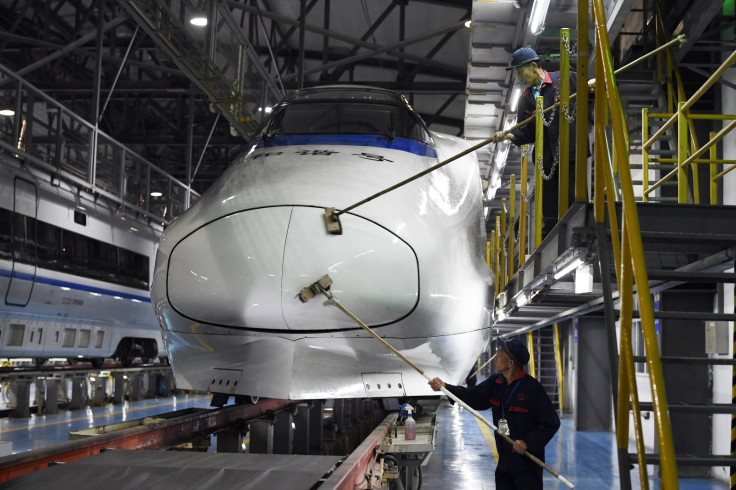Faster than hyperloop: China's supersonic 'flying train' would race at 4,000kmph
China Aerospace Science and Industry Corporation has started groundwork on the project.

China's top aerospace contractor has disclosed plans to develop 'flying trains' – a new supersonic transport system which in theory would be faster than the proposed hyperloop system.
The concept of 'ultra-speed flying trains' might seem a bit far-fetched, or even hypothetical, but China Aerospace Science and Industry Corporation (CASIC) has started the groundwork for the project. According to a 30 August announcement from Liu Shiquan, deputy general manager of the state-run contractor, the next-generation of trains would achieve supersonic 'near-ground flights', going up to a whopping 4,000kmph.
That's thrice the speed of sound (1,225 kmph), or five times faster than most commercial planes and 10 times faster than most high-speed bullet trains. The transport system would be way faster than the proposed hyperloop system, which is envisioned to travel at speeds of up to 1,200kmph. Among other major benefits, CNS, a state-run media outlet, says, the 'flying train' would not be affected by weather and run seamlessly without using fossil energy.
CASIC's system could pose some serious competition to hyperloop, but importantly, it would work on the same idea – magnetic levitation in a near-vacuum tube. Imagine something like a Maglev achieving supersonic near-ground flight in a tube. The contractor claims the ambitious transit-system would be the first to go supersonic.
The contractor has started research work for the new transport system. The train will be developed in three stages, first achieving speeds up to 1,000kmph in cities, then 2,000kmph in megacity clusters and finally 4,000kmph for countries connected via China's One Belt, One Road infrastructure.
The team dedicated to the 'flying trains' has partnered with some 20 research institutes and owns over 200 patents for the project. A number of safeguards to ensure the safety of passengers are to be taken. Mao Kai, chief designer of the system, notes the train will follow a slow acceleration approach – slower than a plane taking-off to keep passengers safe in the vehicle. He did not mention the timeline for the project.
© Copyright IBTimes 2024. All rights reserved.





